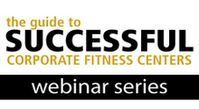It so common for me to hear from clients that they know they need to count calories to be successful with weight loss. Indeed - there is a loud drum beat for that "calories in/calories out" message where the assumption is that you have to burn more calories than you eat to lose weight.
That's been the dominant narrative in weight los for a long time. It's taught in school, and in theory the math works. But weight loss is so complicated that it's really inappropriate to distill the complexity down to a simple greater than/less than equation.
A Weight-Loss Method That’s Hard to Sustain
For those who have followed this concept of “calories in, calories out,” has it been working? Many individuals I speak to have experienced hunger throughout the day and have low energy levels for daily activities. They find this eating method difficult to sustain for a long period of time and find themselves back into their old eating habits. Have you considered whether this eating method is the healthiest solution for you? Many individuals who follow this method are dissatisfied with the results. They tend to lose a majority of weight in lean muscle mass as opposed to fat loss. If that is the case, is counting calories an effective process for losing fat weight? Many share their frustrations of feeling tired and lethargic when focused on counting calories. They feel their health is jeopardized when the focus is on counting calories and exercising more.

Focusing on Food Quality
So how does one achieve good health and be content with their body composition without counting calories? One way to have a positive health outcome is to focus on quality of foods and how those foods affect your body. Quality foods will restore the body’s hormones and enable the body’s metabolism to work efficiently. The body will have the ability to break down stored fat for energy, providing a stable body weight for the long haul. Selecting quality foods keeps us full and satisfied throughout the day, and provides the body with the nutrition required to maintain good health.
Quality foods contain fiber, healthy fats, protein, and low levels of sugar. Fruits and vegetables are loaded with nutrients and contain natural sugars, which are the best choice for healthy eating without having to consider calorie counting. Healthy fats and proteins are the best choice for feeling full and satisfied throughout the day. When consumed they keep blood sugar levels stable, providing a healthy result.
So, which side will you take? The “calories in, calories out” approach, which does not provide long-term healthy results, or provide your body with quality foods rich in nutrients that enable your body’s metabolism to work efficiently and restore your body to good health? You choose.


.jpg?width=477&name=Today's%20preparation%20tomorrows%20success%20sticky%20GettyImages-664811616%20(1).jpg)
 We all know that fruits and vegetables are good for us, right? We hear it all the time that fruits and vegetables lower the chance of certain cancers, eating your spinach will prevent cataracts, eating fruits leads to longer life and beet juice lowers blood pressure. We also know that fruits and vegetables add color and texture to our dinner plate, they are low in calories and provide fiber, vitamins and minerals for our body. So, if something is good for us, why don’t we embrace it and take it all in? Well, it is not as easy as it sounds. For many, it may be the taste factor and immediate satisfaction of good tasting food, overrides thoughts of long-term health. Were you forced to eat your vegetables when you were younger? Possibly the half eaten peas and carrots that were in your mouth became the new center piece at the dinner table? Bad experiences tend to keep us away from trying it again. So, what are the top 3 reasons to increase fruit and veggie intake? Why would I want to give these foods another try?
We all know that fruits and vegetables are good for us, right? We hear it all the time that fruits and vegetables lower the chance of certain cancers, eating your spinach will prevent cataracts, eating fruits leads to longer life and beet juice lowers blood pressure. We also know that fruits and vegetables add color and texture to our dinner plate, they are low in calories and provide fiber, vitamins and minerals for our body. So, if something is good for us, why don’t we embrace it and take it all in? Well, it is not as easy as it sounds. For many, it may be the taste factor and immediate satisfaction of good tasting food, overrides thoughts of long-term health. Were you forced to eat your vegetables when you were younger? Possibly the half eaten peas and carrots that were in your mouth became the new center piece at the dinner table? Bad experiences tend to keep us away from trying it again. So, what are the top 3 reasons to increase fruit and veggie intake? Why would I want to give these foods another try?